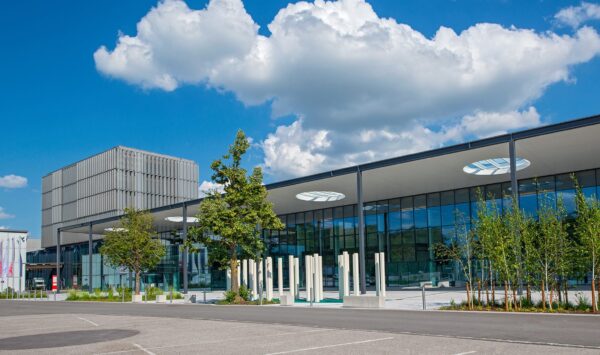The Austrian cities of Linz & Wels, which were planning to submit a joint bid to host the Eurovision Song Contest 2026 next year have dropped out of the ESC 2026 Host City Bidding race.
Linz & Wels will not bid to host the forthcoming 2026 Eurovision Song Contest, thus leaving just two cities in the race: Innsbruck and Vienna.
Intensive meetings have been held to verify if the the two complied with the EBU’s requirements to host the event. After a tehcnical assessment of the venue’s infrastructure, it has come to light that the not all the requirements can be fully met.
The cities offered an excellent organization, logistics, side events, cultural program, and sustainability but fell short with the potential ESC venue’s infrastructure as the the height of the ceiling, suspension points, stage techonology did not meet the EBU’s requirements for hosting.
The high costs of hosting the competition have also played a key role in Linz and Wel’s final decision regarding their potential ESC 2026 bid.
The cities of Linz and Wels in Upper Austria were planning to submit a joint bid in order to host Eurovision 2026. Both cities were working on a joint bid with the Messe Wels Hall 22 as the potential venue to host Eurovision 2026, which promised to be both sustainable and green.
The newly built Hall 22 at Messe Wels would ready by January 2026. Linz intended to the host the public viewing events if it had won the bid.
Linz and Wels’ official press release reads:
The requirements and thus also the costs have increased considerably – in some cases to an unreasonably high financial extent – compared to 2015. In view of the very high financial expenditure combined with the particularly detailed technical requirements, it was decided not to submit an application for the 2026 Eurovision Song Contest.
The Mayor of Wels- Dr. Andreas Rabl says:
Wels, together with its partners, would have been willing and able to handle such a major event. Personally, I would have been pleased if a major event had taken place outside of Vienna for once. However, the complex technical requirements for the hall structures were ultimately impossible to meet. The expected costs were also significantly higher than the estimated budget. In any case, we will continue to strive for international events in the new exhibition halls –seeking opportunities for cooperation with the City of Linz has proven successful.
The Mayor of Linz Mayor Dietmar Prammer says:
“We embarked on this project with great conviction because we believe in the power of collaboration and the cultural potential of our region. Linz, with its diverse offerings, hospitality, and strong team, could have contributed a great deal. Of course, it’s a shame that we didn’t pursue this path further – we would have been delighted to welcome such a large, unifying event, at least in part, to Linz. Even if it didn’t qualify for the application this time, the intensive cooperation with Wels shows what’s possible in Upper Austria when cities pull together. While it’s a shame that it can’t happen, it’s a well-founded decision based on clear facts.”
The joint press release by Linz and Wels reads:
In recent weeks, Upper Austria’s two largest cities, Linz and Wels, have intensively examined the feasibility of a joint bid to host the Eurovision Song Contest 2026. The goal was to bring Europe’s largest music event to Upper Austria for the first time.
As part of a comprehensive analysis conducted by internal and external experts, a large portion of the extensive requirements of ORF and the European Broadcasting Union (EBU) were essentially met. The criteria were successfully evaluated, particularly in the areas of organization, project management, scheduling, legal framework, capacity, logistics, event experience, side events, city branding, cultural programming, and sustainability.
In particular, the new exhibition hall and the close cooperation between Wels and Linz offered optimal conditions for a modern, climate-friendly and highly professional event in the heart of Austria.
However, the technical assessment of the hall’s infrastructure revealed that some specific requirements—particularly regarding ceiling heights, suspension points, and stage technology—could not be fully met. These conditions are currently only fully met at one location in Austria.
The decision to apply was made based on a thorough cost-benefit analysis conducted in consultation with the mayors of Wels, Dr. Andreas Rabl (Wels), Dietmar Prammer (Linz), and Governor Thomas Stelzer. The requirements and thus the costs have increased significantly – in some cases to an unreasonably high level – compared to 2015. Given the very high financial outlay combined with the particularly detailed technical requirements, it was decided not to submit an application for the 2026 Eurovision Song Contest.




